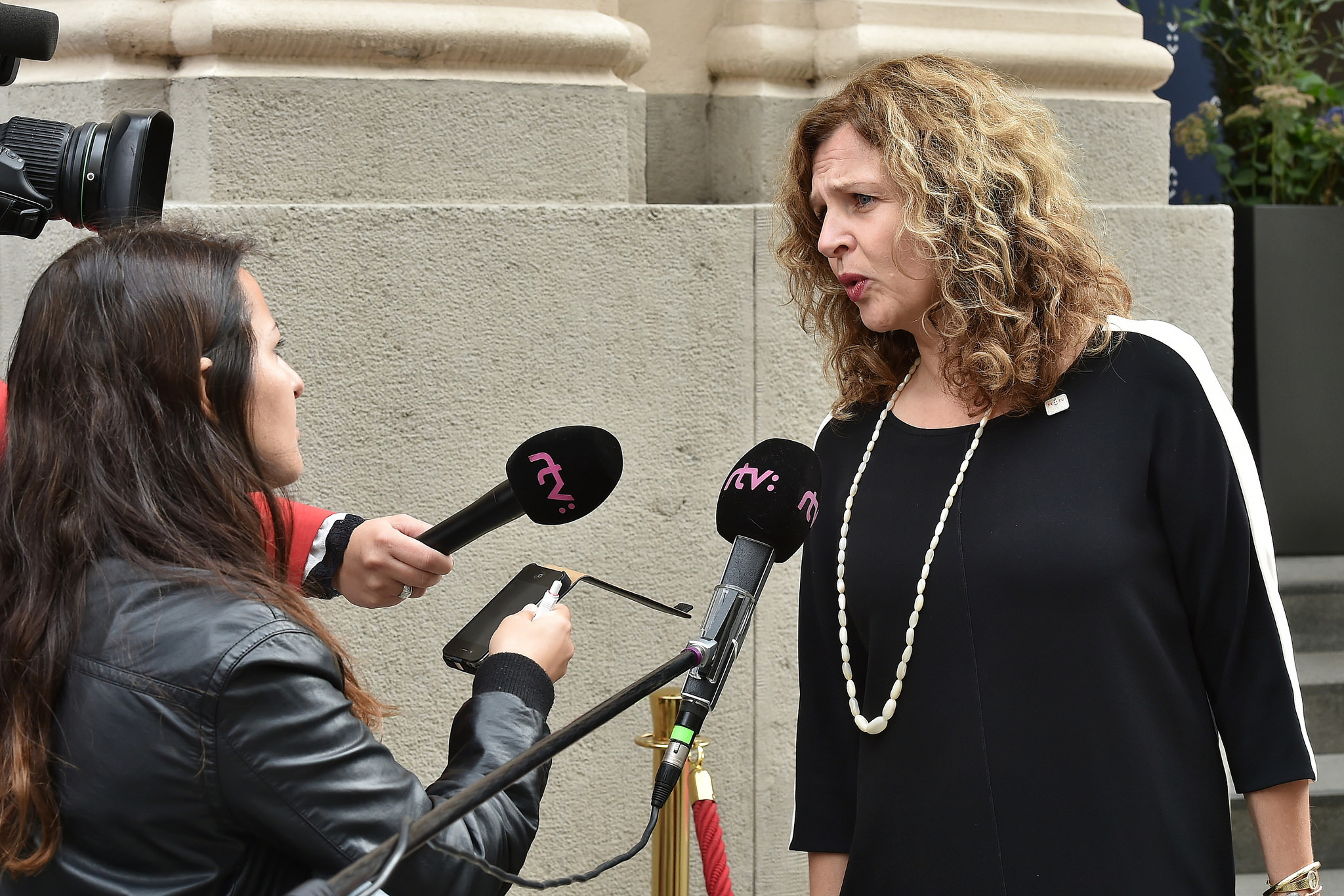Dutch coalition talks have come to a halt over disagreements on migration, infomateur Edith Schippers announced Monday.
The Dutch election took place over two months ago, but coalition talks are still underway, (which isn’t unusual for the Netherlands). At the time, we pointed out that it was going to be a tremendous uphill battle to make changes to asylum and immigration because of a few factors. First, the fact that the top parties all excluded the possibility of forming a coalition with Geert Wilders’ PPV party (which came in second, with 20 seats) meant that it would be necessary form a broad, and maybe unstable coalition. In this case, the center-right VVD, Christian conservatives CDA, environmental leftists GL and democratic liberals D66 have been attempting to negotiate an agreement- despite representing a broad spectrum of different political views. (Read our explainer of where the parties stand on migration and asylum here.)
The second issue was the fact that there were big gains for both pro- and anti-refugee parties. The three parties with the strongest results all took harsh stances on asylum policy, but the parties that made the biggest gains in seats campaigned on multiculturalism and openness to people seeking asylum. So it’s understandable that politicians might not be completely clear exactly where the public stands on immigration and asylum policy. This uncertainty, in combination with a coalition stretching across the center right to the left, was bound to create disharmony on the topic of migration and asylum. And it looks like it has.
Health Minister Edith Schippers, acting as informateur, announced in a press conference that the negotiating factions were unable to overcome their differences on migration, among other topics. “The substantive differences proved too great,” Schippers said.
What differences were the final stumbling block? It could have been a number of specific issues, but we would be willing to bet that the largest differences were between VVD and GL. Remember, the VVD, led by current PM Mark Rutte, wrote in their platform that while refugees have a right to security, that right applies to their own region, and people who make it the Netherlands are more likely to be “economic migrants.” “Asylum applications in Europe are no longer needed.” This strict view varies totally from Groenlinks, who support working rights for people seeking asylum, minimum assistance for rejected asylum seekers, and a continuation of the practice of accepting asylum seekers to the Netherlands. CDA’s position is much like the VVD’s, and while D66 had a more liberal stance on asylum policy, they also concur that the Netherlands should accept smaller numbers of people. It’s reasonable to assume that Groenlinks was the barrier to an agreement, a view most of the press is concluding as well.
On twitter, GL leader Jesse Klaver wrote, “We have made every effort, but this formation attempt has failed. The differences were too great. And that is a great pity.” Geert Wilders also chimed in, tweeting, “As the second party of the Netherlands PVV is fully available.”
Now that its back to square one, will anyone take up Wilders on his offer? Or will we see Groen Links out, in favor of a minority government that is willing to back VVD’s tough asylum policy? There could still be a long way to go before we know what kind of government the Netherlands will have.


One thought on “Dutch coalition talks collapse over differences on immigration”